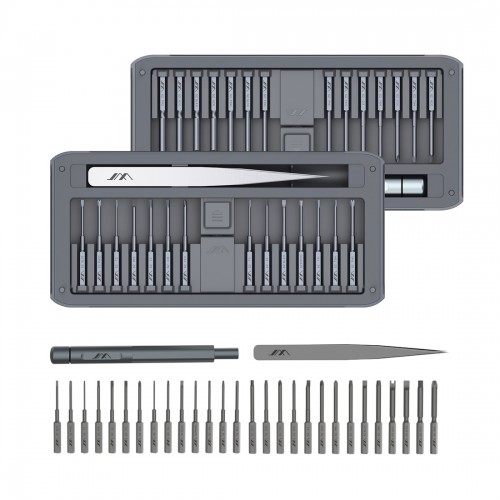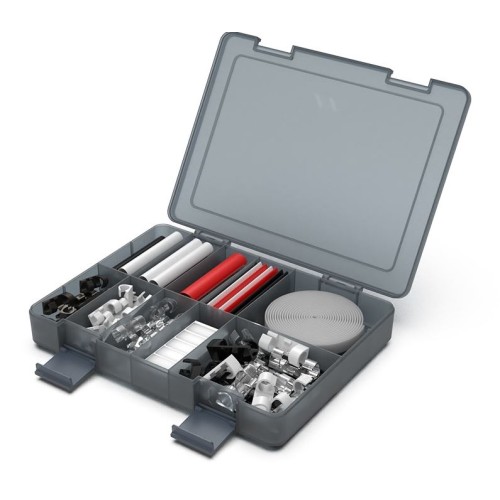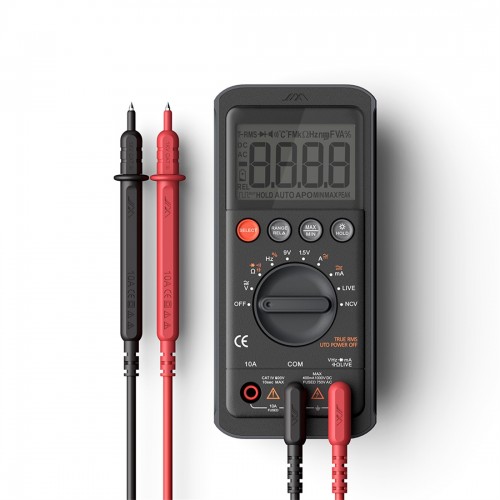
A well-filled tool chest is a technician's key asset for routine tasks like evaluating lumber and securing screws exactly. This handbook delivers know-how to select fitting tools and use them efficiently.
- Begin by assembling a core set of essential hand tools, including hammers, screwdrivers, wrenches, pliers, saws, and measuring tapes.
- Learn the role and practical uses of every tool for specialized tasks.
- Develop techniques through active projects, gradually making tasks more complex.
Keep remembering that honing hand tool skills is an investment in ability. With right comprehension, your tools will expand abilities to handle complex projects accurately.
Amplify Productivity with Power Tools
Keen to revolutionize tasks? Dive into strong tools that marry precision and operational speed. These critical tools can upgrade your craft for both experienced workers and hobbyists. From durable drills to accurate saws, power tools provide a variety of functions for construction tasks.
- Unleash the potential of cordless impact drivers for effortless fastening and demolition.
- Gain skill with reciprocating saws to quickly cut wood, metal and similar materials.
- Refine woodworking by using powerful planers and jointers to get even precise surfaces.
Apply power tools to accelerate schedules and attain impressive project finishes.
Precision Workflows Simplified
When detail is crucial, the right measuring gear alters quality considerably. From simple straight edges to high-precision micrometers, essential measuring tools enable accurate realization of concepts. Whether expert artisan or starter hobbyist, proficiency with measuring devices yields more possibilities.
- Survey a diverse selection of measuring tools for every project requirement.
- Master the particular applications and perks of each measuring tool.
- Cultivate measurement proficiency and proper application methods.
Tool Sets for Every Task
Professional or enthusiast, the ideal set of tools is fundamental to project execution. From screw tightening to furniture assembly, an ideal toolset ensures accuracy and efficiency. Investigate your frequent project types to determine the best tool match.
Do you need a comprehensive set with a wide range of tools, or will a more specialized kit suffice? Having clarified demands, investigate various brands to compare specs, quality and pricing. Be sure to consult user reviews online for practical feedback prior to purchase.
Using careful research and forethought you can select a toolset to tackle tasks with assurance.
Caring for Hand Tools to Maximize Lifespan
Maintaining proper care of hand tools matters for every woodworker or DIYer. Skipping care leads to blunt cutting edges, part failures and unsatisfying results. Sustained care maintains tools in top condition for prolonged reliable use. After use, wipe and remove grime from tools to maintain condition. Store them in a dry place to prevent rust and corrosion.
- Sharpen cutting tools consistently with a stone or fine file.
- Lubricate mechanisms with fitting oil to reduce friction and prolong service life.
- Inspect handles for cracks or damage and replace them as needed.

Applying these simple maintenance practices improves tool durability and your overall work experience.
Fundamental Hand Tools for Your Workshop
A complete workshop becomes an inviting workspace for enthusiasts and hobbyists. Although specialized equipment helps, a core set of hand tools is vital for many jobs. Essential picks include a dependable hammer, an adjustable wrench and a solid tape for accurate measuring. Include varied screwdriver sizes, pliers for gripping and a utility blade for cutting work. A high-quality saw offers precise cuts and a level keeps work straight and balanced.
- Workshop Basics: Essential Hand Tools

Demystifying Power Tool Safety: A Comprehensive Guide
Power tools are potent machines offering strong performance and time savings. However, these formidable machines also require a deep understanding of safety protocols. Ignoring safety steps might result in major injuries. This guide aims to demystify power tool safety, equipping you with the knowledge and practices needed to work safely.
Begin by studying your tools, review instructions carefully and comprehend safety components. Continually use appropriate protective equipment including glasses, ear defenders and gloves. Inspect and service tools routinely to verify reliable operation.
Always place safety first in any workshop. Complying with these precautions ensures you can use power tools safely and with confidence.
Picking Accurate Measuring Tools
When pursuing precise measurement outcomes, tool selection yields a major impact. A range of measurement tools exists, each intended for particular uses. Awareness of tool features helps you make better selection decisions. Take into account accuracy, resolution and measurement type when choosing proper tools.
- For length measuring tasks, a tape measure or ruler is generally used.
- A protractor serves as a must-have for angle measurement.
- Calipers are excellent tools for precise small-scale measurements.
Choosing suitable measurement instruments thoughtfully guarantees dependable accuracy.
Choosing the Best Comprehensive Tool Set

Deciding on a tool set can feel both thrilling and a little daunting. With many choices on offer it’s normal to feel overloaded. This thorough resource equips you to select the perfect toolkit for your needs.
Begin by assessing the project types you'll most often tackle. Are you a seasoned professional or a beginner? Clearly defining your goals will help narrow down your choices.
- Consider using a mix of power and hand tools to achieve productive, efficient results Use both hand and power tools together when suitable for optimal, efficient results Use both hand and power tools together when suitable for optimal, efficient results
- Make essential tools your top priority
- A reliable hammer, mallet or sledgehammer
- An adaptable collection of screwdrivers, wrenches and pliers is crucial
- Tape measure or ruler for measuring
- Level, plumb bob or transit for alignment
Consider tool build materials, your budget and the maker's reputation. Keep in mind a durable toolkit is a long-term investment.
DIY Made Simple: Using Tools Effectively
Embarking on your first DIY project can seem daunting. However, with correct tools and basic knowledge, even hard tasks become achievable. Initiate by getting familiar and learning tool operations. Read guides meticulously and test out basic operations safely. Always prioritize safety as your first consideration. Use protective equipment such as goggles, gloves and ear protection to guard against hazards.
For tool purchases, quality and robustness should guide decisions. Buy from dependable brands that provide durability and longevity.
Ask for tips from experienced DIYers or professionals at nearby hardware outlets. Store pros and experienced DIYers can share practical suggestions and insights for picking ideal tools.
- Ensure tools are sharp—a sharp tool improves safety and performance.
- Store tools correctly to maintain condition and prevent loss.
- Don't be afraid to try attempt venture new things
Deciding on Power or Hand Tools for Tasks
Working on a project? Picking between power and hand tools can be a challenging decision. While heavy-duty power tools bring speed and capability, hand tools stay essential for precision and small tasks. Refer to this brief guide for choosing between power and hand tools.
- For detailed, precise work—carving, fitting, intricate fixes—hand tools are ideal. These tools offer heightened control and usually come at a lower cost.
- Power tools are ideal for rapid, effective operations like sawing, drilling and sanding broad surfaces. They markedly minimize labor and accelerate completion times.
Ultimately the most suitable tool depends on the exact project, your proficiency and spending limits. Combine hand and power tools strategically for successful and efficient project completion.
